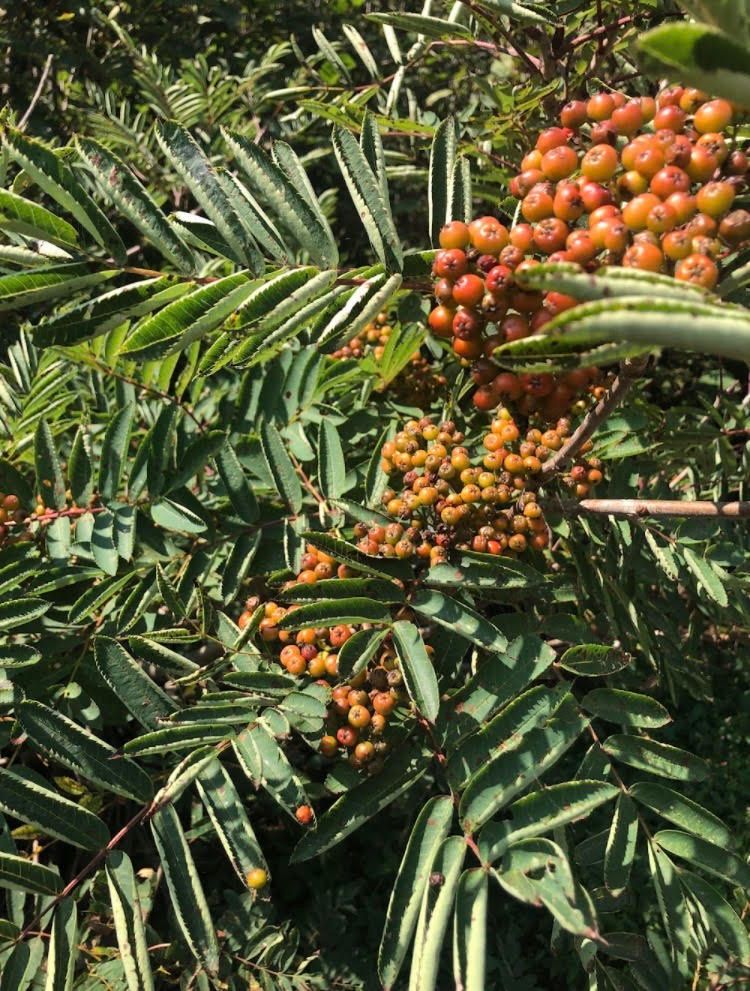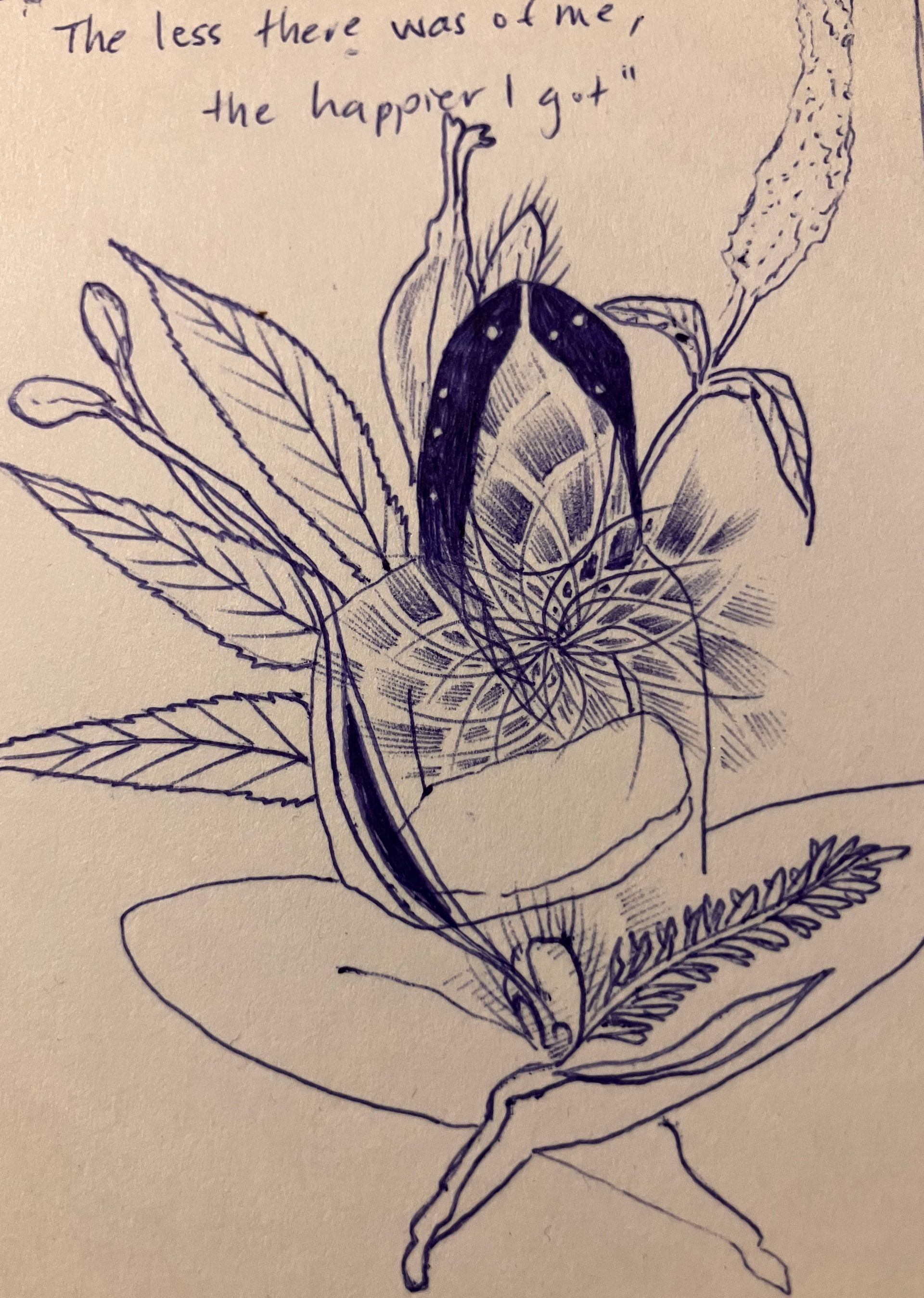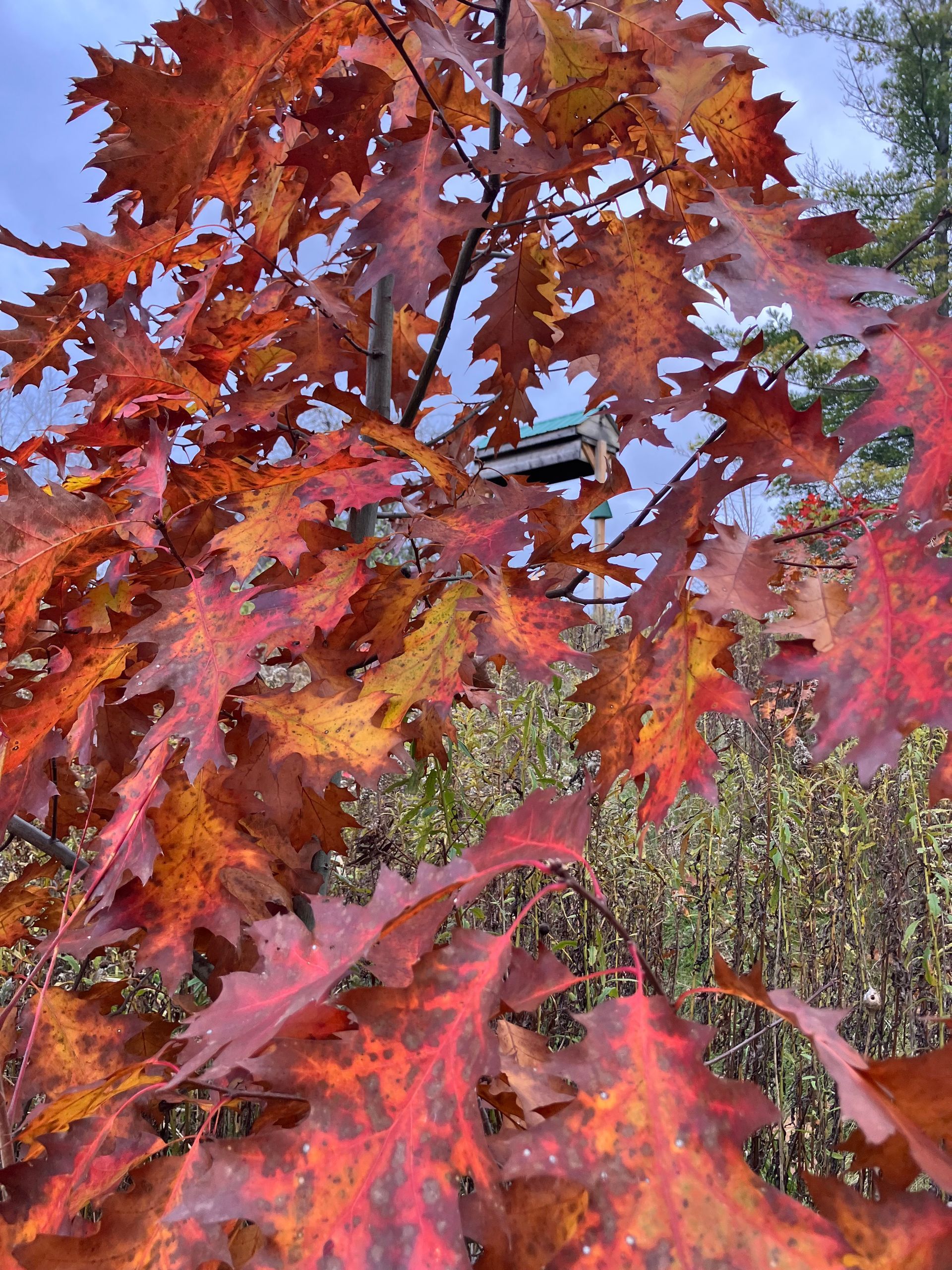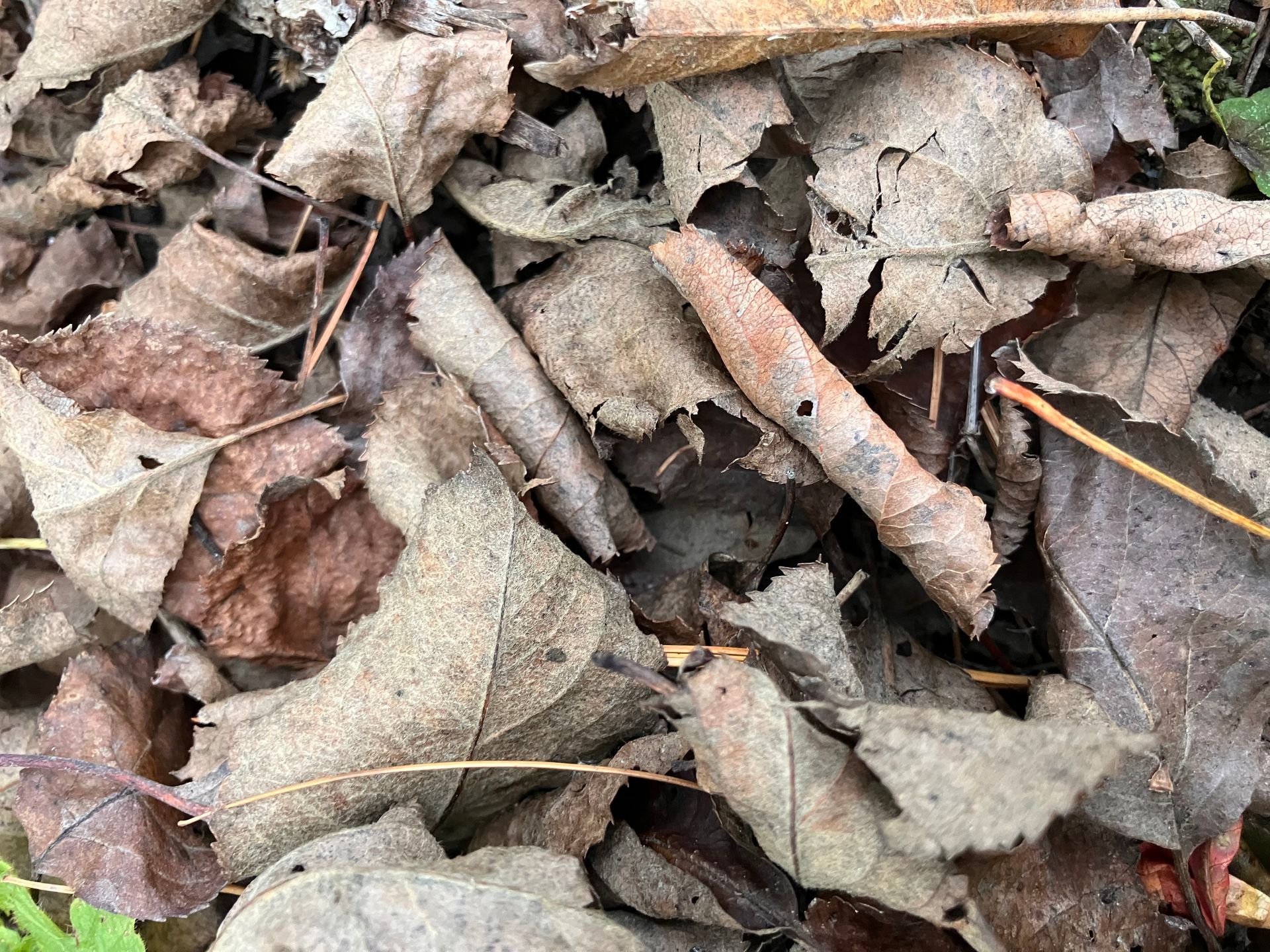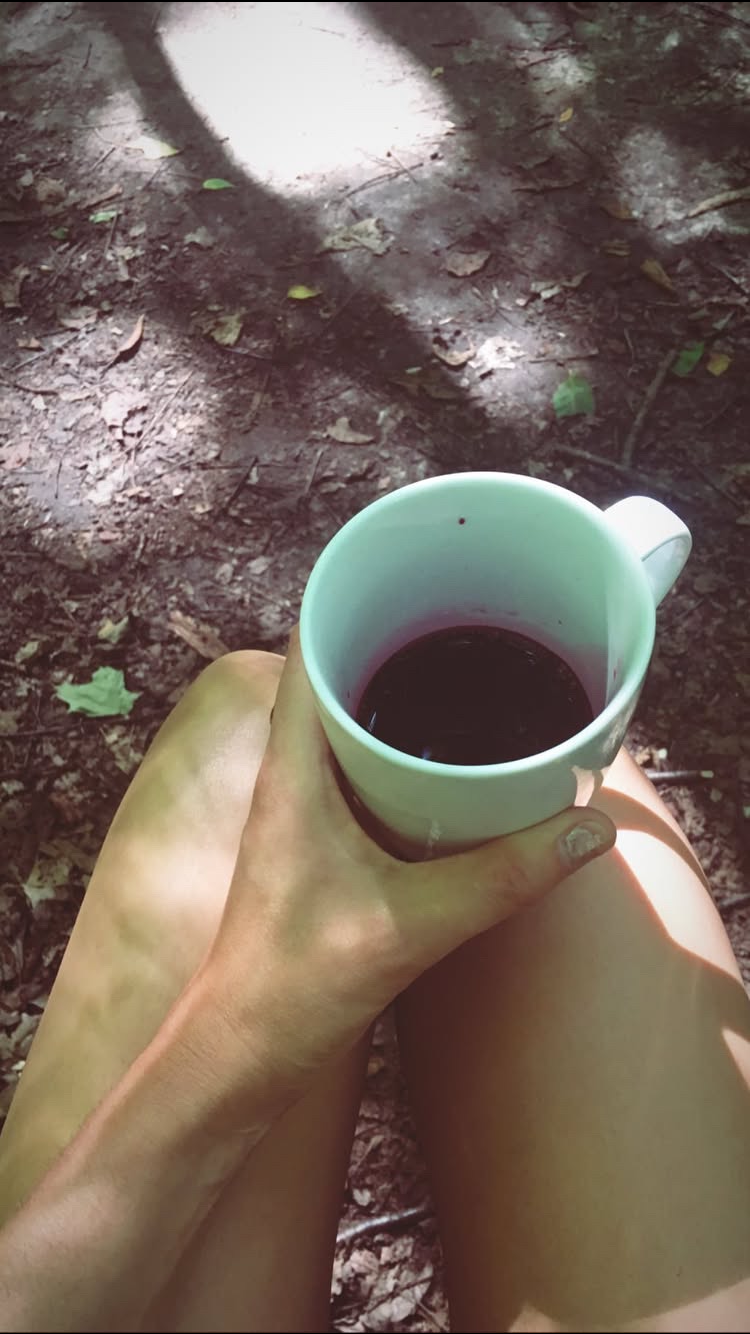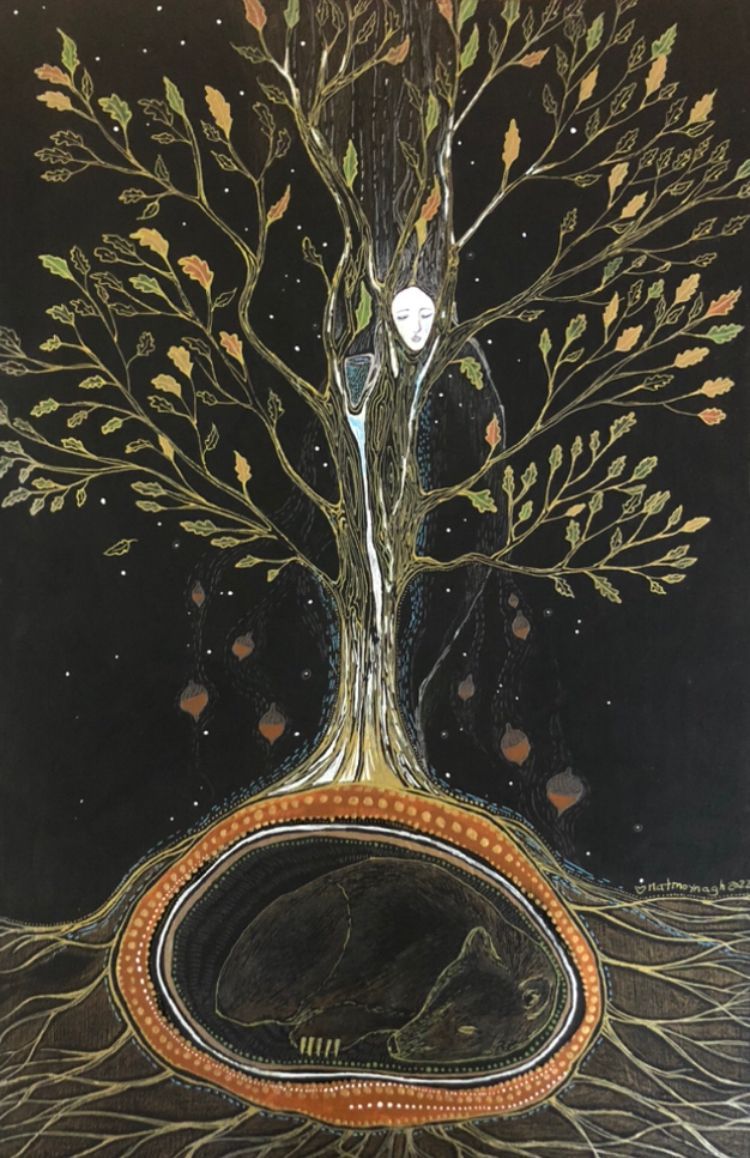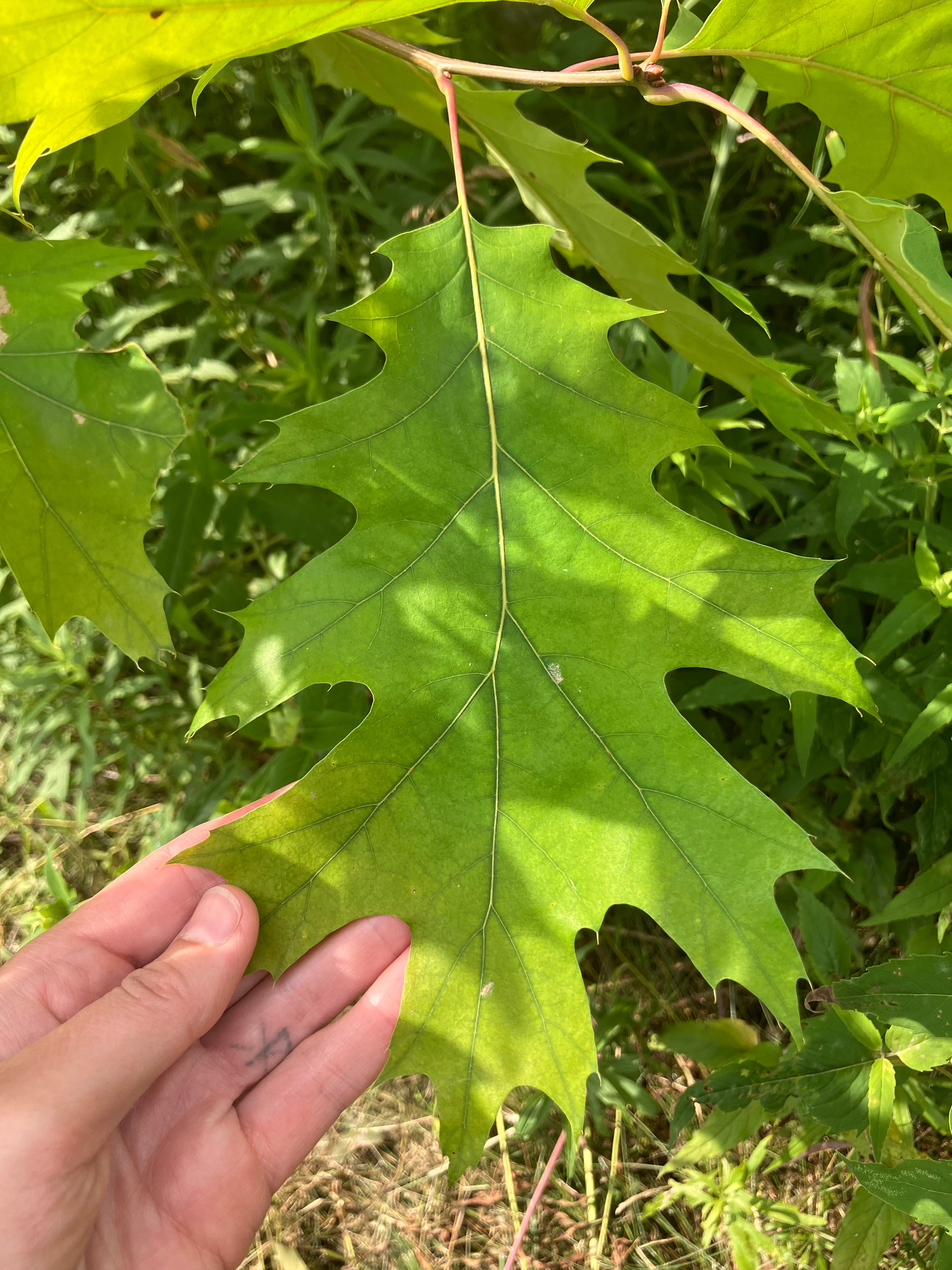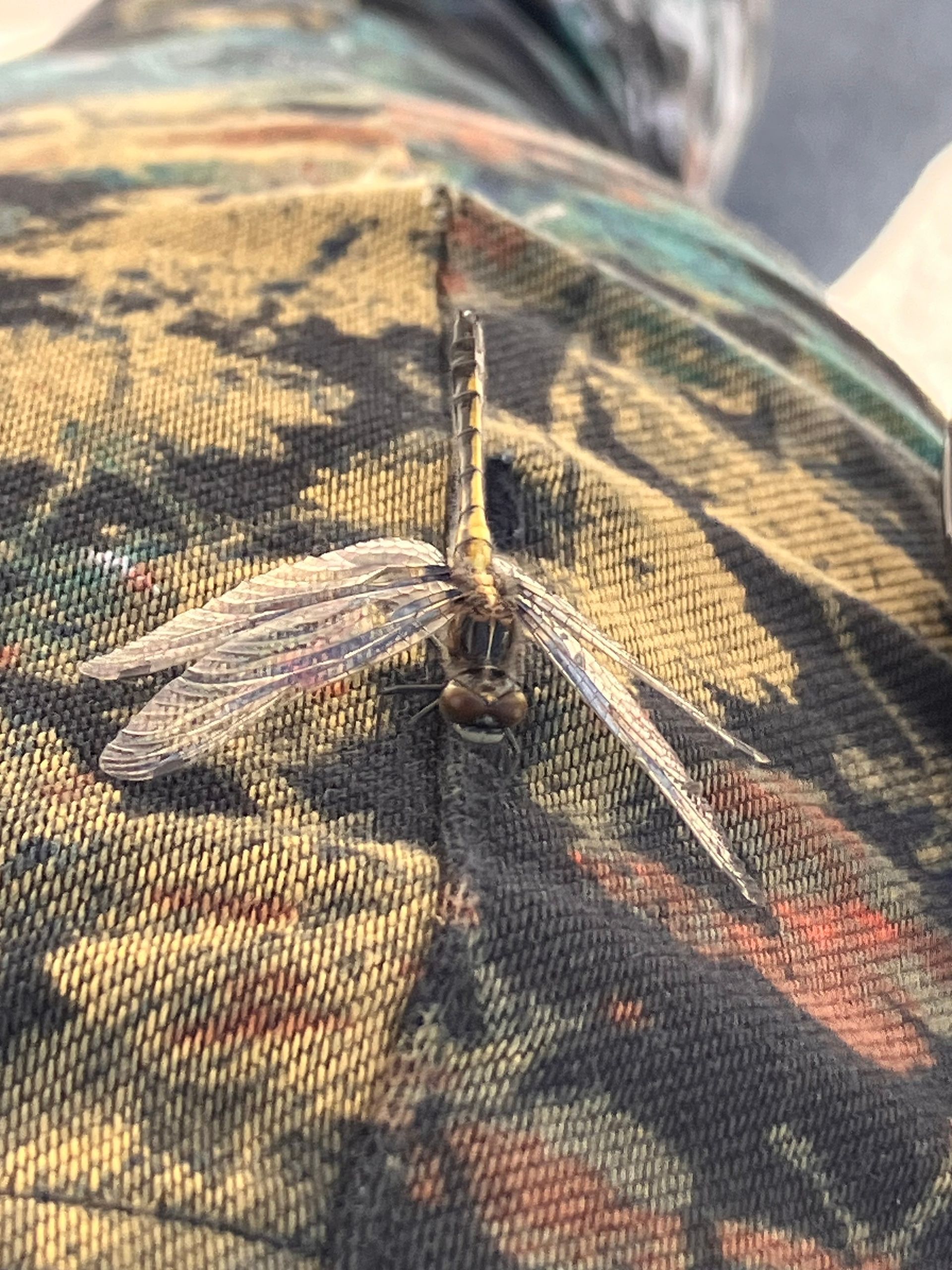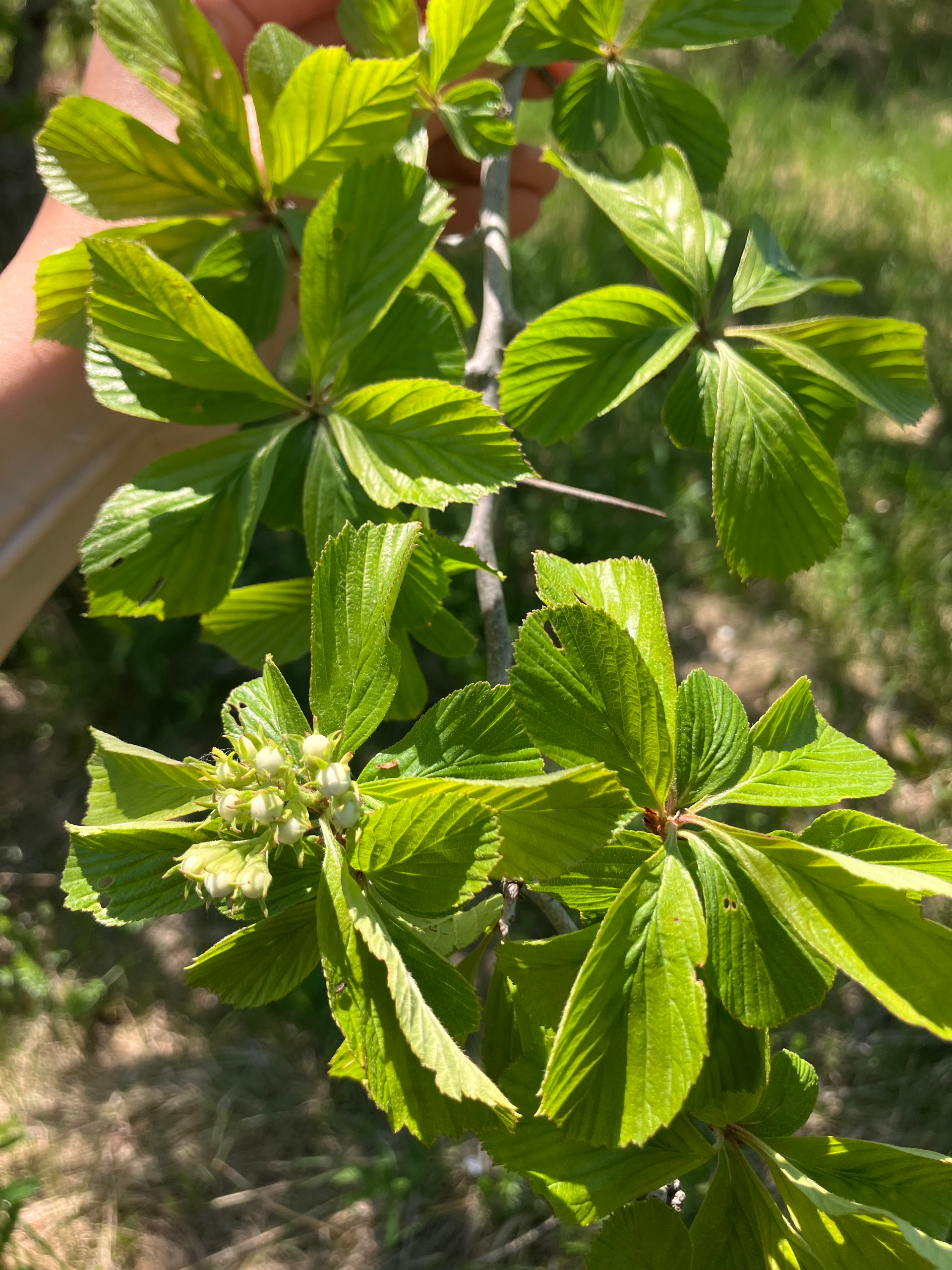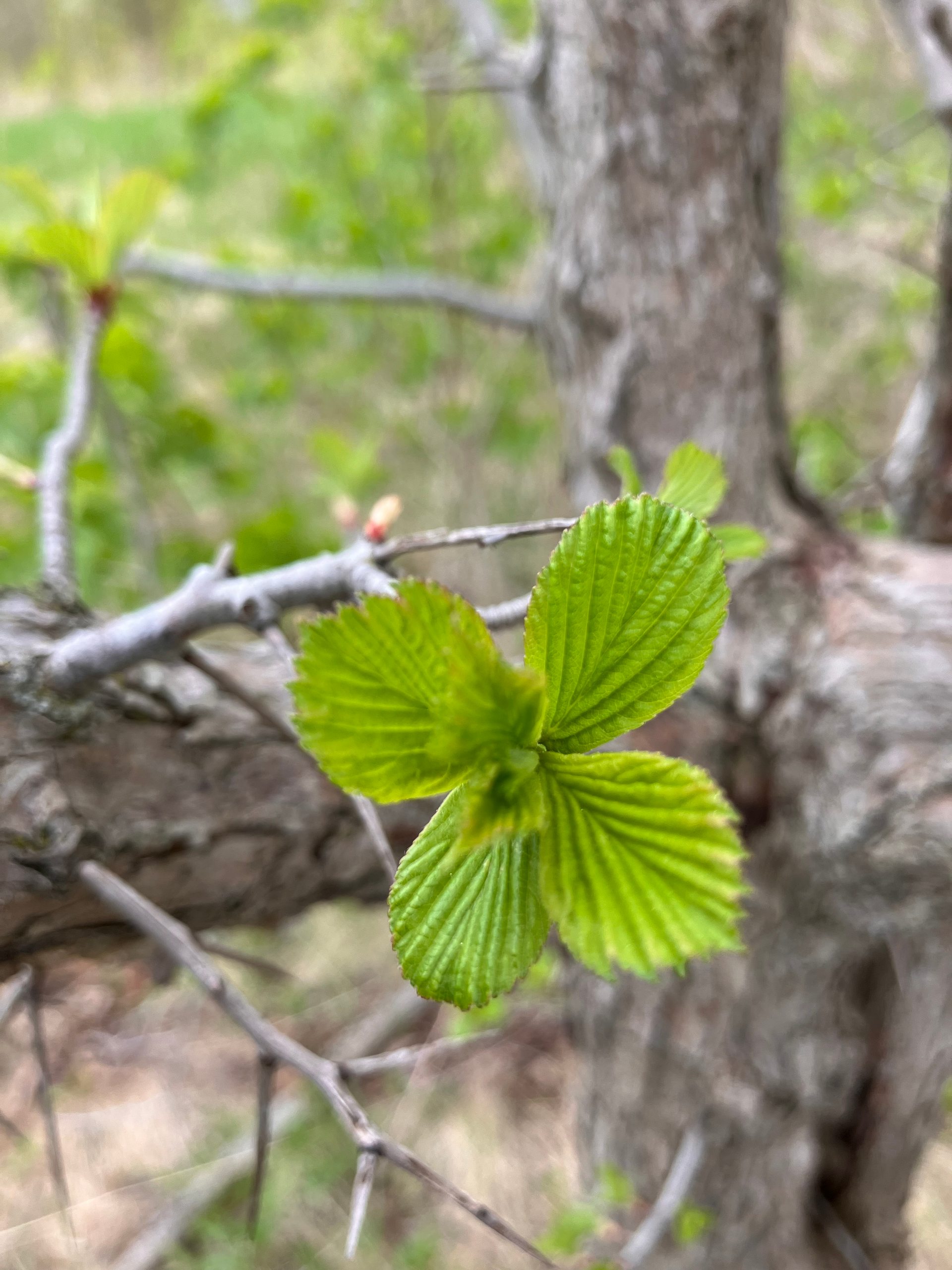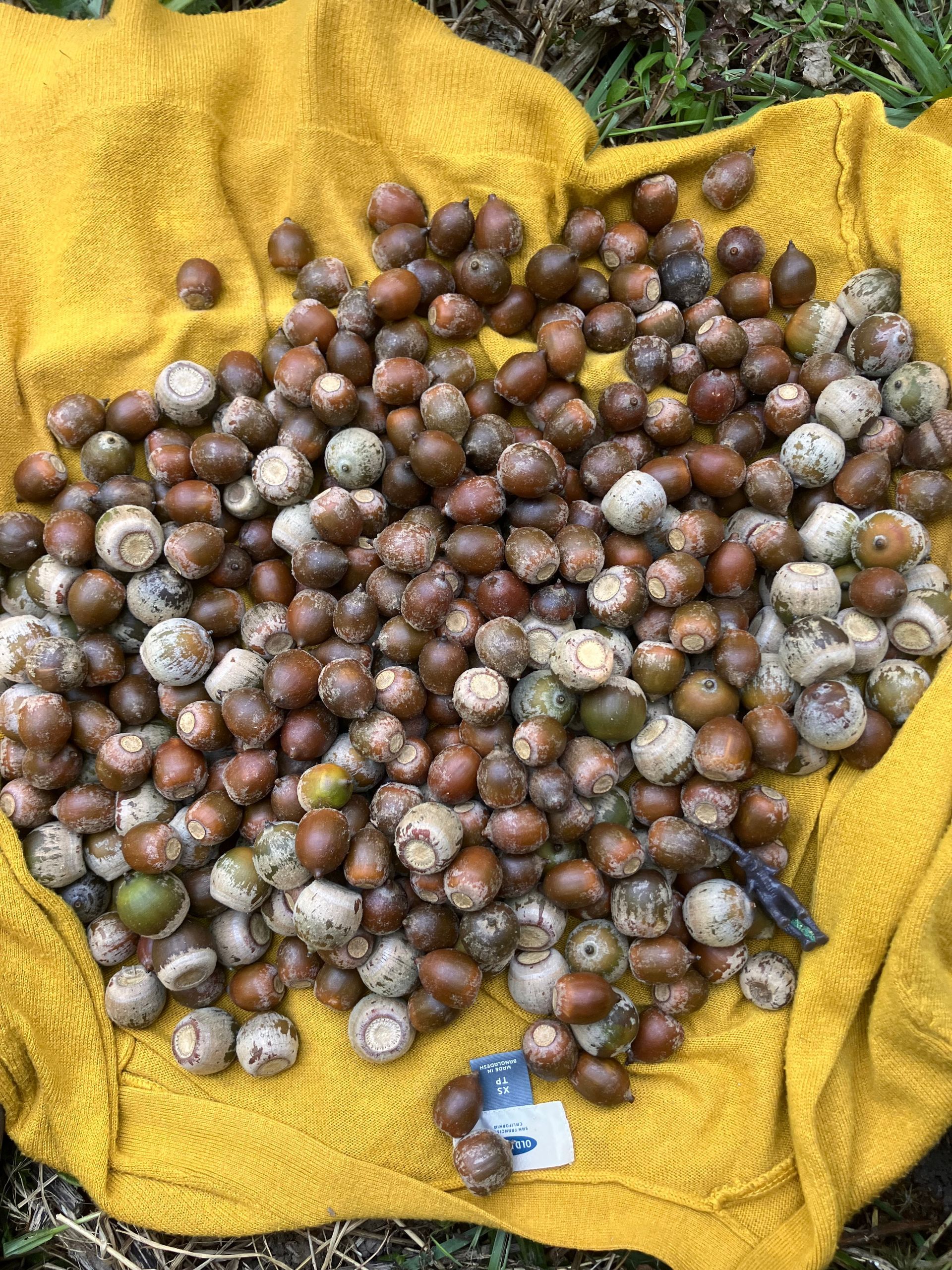July - September 2025
I’m back at it with my tree studies, a little/a lot delayed due to spending some time out East visiting family/friends/community and then moving cities.
Technically the period of time for oaks is June 10th to July 7th so here I am, staying true to my snails pace, not racing but just honouring my capacity without deadlines.
I notice my attachment to the hawthorns and how it’s hard to start focusing on getting to know this new tree. It’s like flexing a muscle for me, letting go of attachment, opening up to the newness of getting to know a different being. Like any relationship it takes work and I can’t help but carry some emotion about beings I get to know well.
When I think of getting to know a new being, whether human or otherwise this counselling teacher comes to mind who shared her orientation to doing the dishes in a class I attended many moons ago. She said it's not that "I have to do the dishes" it's that “I get to do the dishes” and this simple line transformed how I felt about doing the dishes forever. I strangely love doing the dishes now. It was a class on mindfulness and she was sharing with us how much the mundane can become deeply nourishing & rewarding when we are embodied and present in our ways of relating to what we're doing/experiencing. Being alive is a privilege, getting to do the dishes, getting to know these trees. A deep and rewarding privilege that I don't want to take for granted.
To explain it a little differently, according to Thich Nhat Hanh "there are two ways to do the dishes. The first is to wash the dishes in order to have clean dishes and the second way is to wash the dishes in order to wash the dishes.
If while washing the dishes, we think only of the cup of tea that awaits us, thus hurrying to get the dishes out of the way as if they were a nuisance, then we are not "washing the dishes to wash the dishes." What's more, we are not alive during the time we are washing the dishes. In fact we are completely incapable of realizing the miracle of life while standing at the sink. If we can't wash the dishes, the chances are we won't be able to drink our tea either. While drinking the cup of tea, we will only be thinking of other things, barely aware of the cup in our hands. Thus we are sucked away into the future- and we are incapable of actually living one minute of life." ~TNH
So anyway, I’ve picked the northern red oak specifically, one that lives a few feet from the hawthorns along the woolner trail. I noticed this particular tree has some blemishes/a dis-ease of some kind. Perhaps a bug interaction or an affliction of some kind. I don't really know, I’m not an arborist but I'm curious and I can relate. I've had several different viruses the past few months and I've been reflecting on how porous some of us are to everything we come into contact with, how we are all so impacted by other organisms we share our bodies with involuntarily. I've been trying to unpack the stigma and the anxiety that has amplified in me since having lived through a pandemic where I sincerely worried a lot about accidentally killing innocent people by the sharing of these invisible germs.
I find this poem really helpful in de-conditioning this fear response around the fact that there is so much we can't control with the things we catch and may pass on to others inadvertently.
"Life is porous, the whole world leaks.
There’s no such thing as a perfect seal.
It all gets out, it all gets in;
Everything leaks into every thing.
So that every thing can heal.
What a terrible, sad neurosis
Is the fear of this osmosis. "
~ Michael Leunig
Of course, it's not that simple in reality because of capitalism, able-ism and this deep pervasive cultural fear we have of death, disease and suffering. The trees can teach us a lot in the ways they live and break down, sharing their bodies with other organisms without the human way of over-thinking it. Although maybe they take things in and mull them over in their own way, perhaps in ways that are more embodied and less individualistic. Which brings me back to the question: What is the consciousness of a tree?
Philosophically, "consciousness refers to the subjective awareness of one's own existence, sensations, thoughts, and surroundings." But what about our own human biases?! What if awareness comes in other forms for trees, not from the brain or nervous system but rather from their spirits? What if science isn't sophisticated enough to measure this field of awareness yet. What if there's a nervous system we can't detect, what if there are other ways of knowing we can't yet imagine.
In the words of Ralph Waldo Emerson, a philosopher, abolitionist and transcendentalist "Science does not know it's debt to imagination". Often these concepts begin as ideas in our own minds before we investigate and eventually find the external proof that confirms our imaginings or put another way, our theories.
Thomas Nagel, author of "What is it like to be a bat?" insists that "an organism has conscious mental states if and only if there is something that it is like to be that organism- something it is like for the organism." To broaden this scope of studying and wondering about consciousness, in his words "There are facts beyond the reach of human concepts". It's also quite political when you think about it. What are the ramifications of realizing the other than human world is conscious, maybe not just like us but in other meaningful and maybe even more adaptive/evolved ways. Do we deny them the same rights we grant ourselves because we draw a line between what it's like to be "them" and what it's like to be "us".
From my vantage point, what happens when we draw this line is that we objectify them as things to use for our purposes above their right to determine the course of their own lives. Given our extreme interdependence with trees, can we really separate ourselves to such a degree? I think it's quite delusional. Though maybe they know better than me. I have to question my own biased lens here, because i think at heart their way in the world is so incredibly evolved that in reality they have far surpassed this ego-y way of thinking and being that we as humans are so stuck in, needing to see ourselves as superior, above, better than- the ones to decide who is conscious and who is not with our own language and limited understandings. All I can do is surrender and live in awe of their ways, trying to be open to learning from their experiences, wondering and imagining what it might be like for them in ways we can't possibly understand because we operate so differently..
I once heard a medium try to describe what it might be like for someone dis-embodied (dead) to try to explain to us mortals what the other-world/after life is like and he likened it to trying to explain to a cockroach what it's like to be human. There just isn't a way to translate our experience to them because we are so different and I would imagine it's similar between humans and trees. We just can't comprehend it.
To tie this all together, I just started reading this book by Starhawk “the pagan book of living and dying” which feels timely in a multitude of ways. So much about it feels synchronistic to me right now, which always feels like a little nudge from spirit that I’m on the right path, when something I randomly pick up or feel drawn to brings together so many themes I’ve been mulling over/contending with.
Starhawk shares that “To Pagans, as to indigenous cultures world wide, nature is sacred- that is, from nature we draw our inspiration, our teachings, and our deepest sense of connection. Nature has an inherent value that supersedes human convenience of profit, and the balance of nature cannot be ethically sacrificed to human ends. Our Goddesses and Gods are immanent: embodied in the living processes of nature and human culture. Or perhaps we might more accurately say that our deities are themselves embodiments of the complex interrelationships and cycles of the natural world.
Today scientists such as James Lovelock propose what they call “the Gaia Hypothesis”- the theory that the earth functions like a living, self-regulating organism. This theory is not news to pagans (or to any other indigenous culture on the planet). We see the earth as a living being, and all of life as interconnected. The networks of microscopic fungi that inhabit the roots of the great redwoods feed those giants. The great forests of the West Coast create the rains that fall inland. The pollution of a small stream in the Rockies eventually flows into the ocean and then circles the globe.
To Pagans, all life is imbued with consciousness and all living beings are constantly communicating. The consciousness of a tree may be different from yours or mine; indeed, unless it is a very large and old tree, it may be less the consciousness of “this individual seedling oak” and more the consciousness of “oakness”- a group or collective sense of being. But awareness, presence is still there-in a tree, even in a rock or a mountain. When birds sing and dogs bark, we can hear their communication. Although trees communicate less perceptibly- perhaps chemically or energetically, certainly in ways that are harder to define- we can train our ears to hear and learn ways to speak back.
Indeed, Pagans know that conversation is not only possible but necessary and desirable. We see human beings as part of nature, with our own tasks to perform and role to play in the balance. We need to talk to trees for our own health and connection and wellbeing; and trees likewise need and want to talk to us, just as they need to communicate with insects, birds, mycorrhizal fungi, and soil bacteria.
Humans are not the pinnacle and ultimate justification for the universe, nor are we doomed to be a blight on the planet, inevitably destroying what we touch. The terrible imbalances of present-day culture are an anomaly in the million-year human heritage, and we have both the capability and the moral responsibility to bring our way of life back into balance. Only by understanding the cycles of birth, growth, death, and rebirth can that balance be achieved. “ ~ Starhawk
